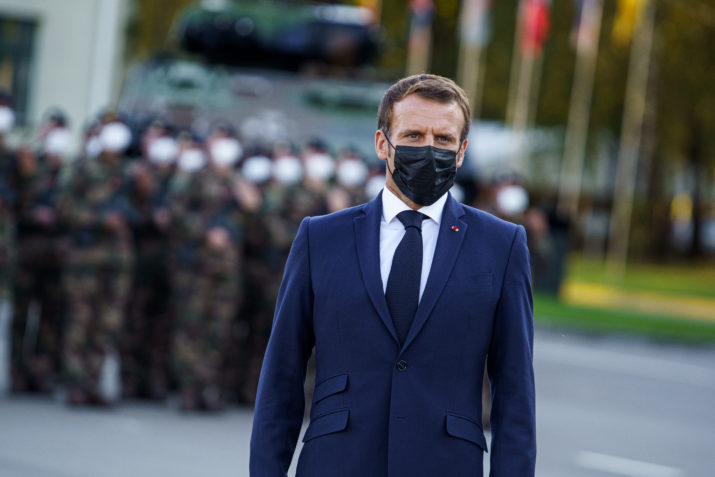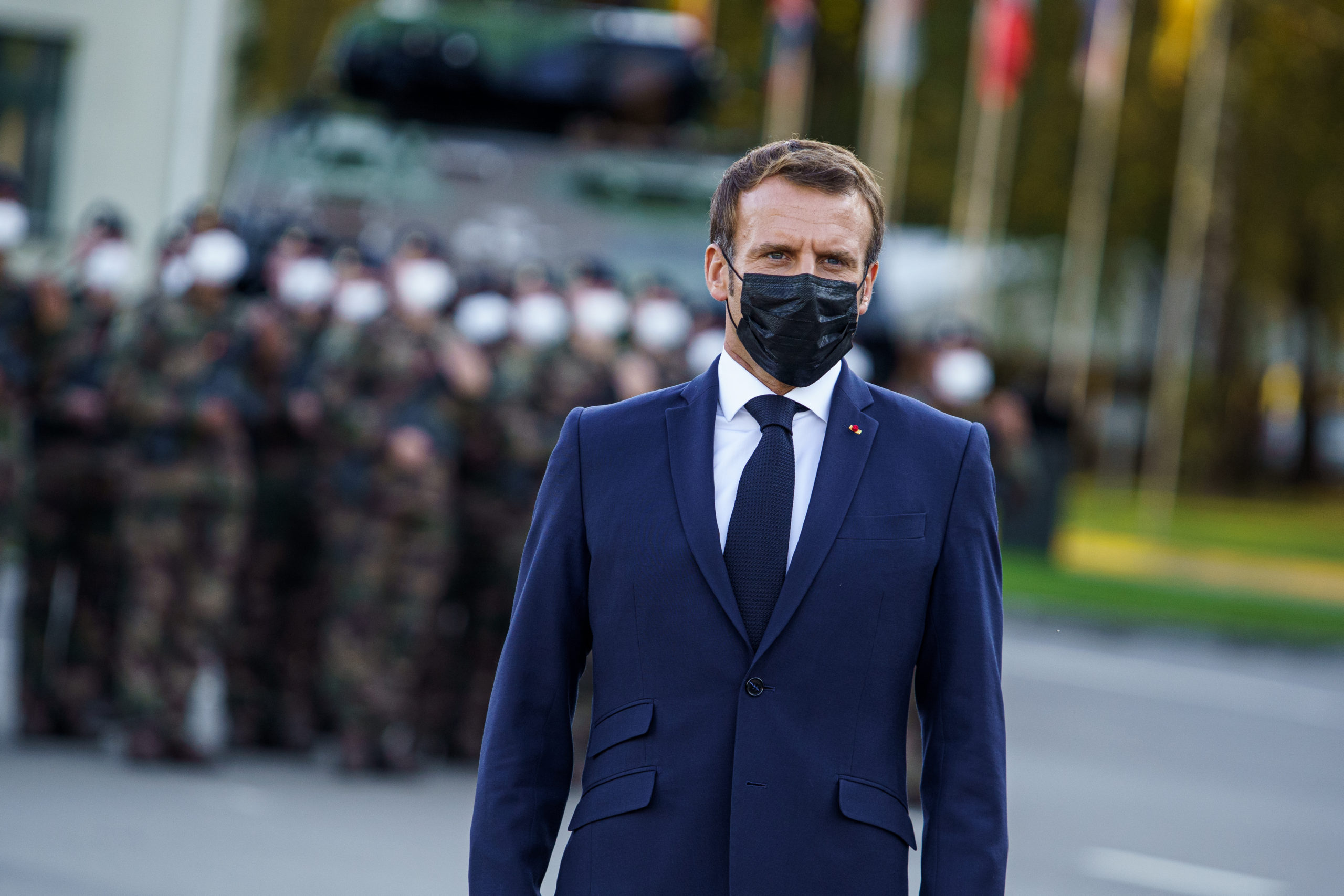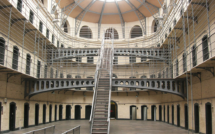

The history of the European Union and her predecessor organizations, the European Coal and Steel Community and the European Economic Community, is a remarkable story of war and desolation being replaced by peace and seventy-plus years of collaboration and coordination in support of economic growth and political stability. This fundamental achievement: the assurance of peace and prosperity for hundreds of millions of people across the continent is surely one of the greatest diplomatic achievements of the twentieth and twenty-first centuries. Europe’s success has also been a story of joint farsightedness between generations of leaders of France and Germany, who have ensured the institutions and architecture of the European Union function effectively and have repeatedly overcome challenge after challenge. In 2022, French and German leaders face a series of new pressures and tensions within the Union. How they deal with them, together, will determine the story of Europe that our children will write, and the nature of the political union and the planet they occupy.
On the one hand, we have a technocratic big picture President Emanuel Macron fighting for his own political survival. On the other, we have a historic Red-yellow-green coalition in Germany that takes over from Angela Merkel. This alliance, in a Europe re-balanced without the United Kingdom, will drive Europe’s progress in the years ahead.
Macron’s technocratic populism must work yet again, but can it do so?
President Macron was swept to power as a technocratic populist—neither left nor Republican, but right for the time. Macron won in 2017 as the support for the traditional parties cratered. The Socialists imploded, thanks to the DSK scandal and François Hollande’s weakness and unpopularity. In 2017, candidate Macron harnessed popular anger at the existing elites, promising competence and delivery. Macron was an “insider taking on the system and positioning himself as an outsider” (Perottino and Guasti 2020). The pitch was remarkably successful as his new political party and electoral coalition appealed to a broad swathe of voters coming from center, left, and right “exploiting the middle space left vacant by other candidates” (Fougère & Barthold, 2020). Voters were able to project their diverse hopes and goals on the technocrat Macron, for it was unclear exactly what he stood for.
Can Macron pull off this same electoral trick twice? This is less than clear, as the incumbent Macron will find it hard to run against the system he has led—although not impossible. Opponents and voters are measuring Macron against his track record, perceived or actual. The French President has made some notable enemies. His technocratic top-down approach crashes up against angry French and exhausted communities—as we saw in the Gilets Jaune protests and his attacks on anti-vax minority. But in 2021, as France bounced back from the pandemic, it experienced a 7 percent annual growth rate, its fastest in 52 years (Wearden 2022), boosting Macron’s chances.
In 2022, Macron’s electoral prospects depend, in large part, on how well the public views his handling of the latest Omicron phase of the pandemic, ensuring wide vaccinations, using the vaccine passports, and lifting restrictions on a populace that is sick and tired of living in boxes unable to socialize and live life. As France reopens, if tourists return, and if the economy further rebounds, a Macron victory looks likely; nationalist narratives may have less traction as voters look on the upside. Macron’s technocratic delivery matters. Assuming Macron routs the right and secures a second term, what of his German allies?
Germany’s red-yellow green coalition takes Merkel’s stability and will tint it with new colors
With the largest two-party swing from CDU to SPD in Germany’s modern history, the electoral victory of the SPD was remarkable—led by a careful and consistent Olaf Scholz, who was at pains to stress his “continuity with Angela Merkel’s policies” (Adonis 2021). The electoral result set the stage for the signing of a red (SPD), yellow (FDP), and green (Green Party) coalition in December 2021 and the beginning of the “post-Merkel Era” (DW 2021). This historic, greener, possibly more economically radical coalition will see Germany continue to lead the Union, alongside France and her allies, toward altered pathways and routes.
However, the Franco German alliance and European Union face a series of significant challenges, over the short, medium, and long-term. In the present, Europe faces the foreign and defense policy challenge of the Russia-Ukraine crisis. Here, the Union is not the main player, NATO and the US are. However, the divergence between French and German approaches are clearly visible. The former, not for the first or indeed the last time, has sought to use the crisis to take a tough martial line and argue for the buildup of Europe’s defense architecture, without success. The latter has been less willing to take a tough stance, as for obvious historic reasons Germany prefers diplomacy over conflict in Europe. Ultimately, the outcome of this military challenge will be determined by Moscow and President Putin, Washington and President Biden, and whether the former will step back from the brink or trigger fighting, economic sanctions from the latter, and further exogenous geopolitical shocks to the continent.
Greater clarity on the green transition
In the short and medium term, Europe faces the green transition challenge, and simultaneously, a serious challenge to European internal norms and rules. Both need continued leadership and clarity to be effectively addressed. European leaders understand going green. Securing net zero will be the engine of sustainable economic growth and the next industrial revolution. The future of Europe is a green net zero (even net negative) one. Europe’s policymakers are already in advance of the rest of the globe in pursuing the 1.5 degrees Celsius climate change goals, as agreed in Paris in 2015, and reconfirmed at the latest talks in COP26 last November. European leaders, with funds from the contributing major member states have begun to implement Europe’s Green New Deal (European Commission 2022), which is a third of the overall 1.8 trillion Euro pandemic economic recovery plan. The EU Green New Deal includes a set of proposals to make the EU’s climate, energy, transport, and taxation policies fit for reducing net greenhouse gas emissions by at least 55 percent by 2030 and drive Europe’s green economic growth in the decades ahead. The Franco-German alliance is already playing and will continue to play a key leadership role in that decades-long process.
France is demonstrating leadership by doing. With almost a 100 percent of power generation coming from nuclear, her carbon footprint is among the lowest per capita in the advanced world. Macron and his team will need to press forward on the green transition, building on existing policies that work, such as France’s hugely successful reforestation effort—or its legal requirement that large financial firms report on the carbon intensity of their portfolios—and constructing new green pathways.
Germany’s coalition is a deeper hue of green than any prior government and has signaled potentially that policies will be altered and there will be new leadership from Berlin. The coalition has committed to massively expand renewable energies, establishing a target to phase out coal by 2030, eight years earlier than previously planned, and a plan to use Germany’s foreign policy to drive shifts on climate globally. Now, the issue is implementation across the entire country and economy. It can be done, but it will not be easy for Europe’s industrial fossil-fuel addicted behemoth.
In 2022, we have the two leading European Union states clearly in line on key aspects of the green transition. They will be aided by leaders and allies in Italy, the Netherlands, Sweden, and others, as Europe turns the regulatory state and market forces to the task of greening globalization. European leaders understand what is at stake. They have many of the pieces already in place. In the winter of 2022, carbon prices in Europe are hitting historic highs. Europe’s policy makers are engaged on managing a transition they understand and to which they are committed. This is a stark contrast with the disarray and failure across the Atlantic, where presidential rhetoric cannot align with policy delivery, which is stalled in the Senate.
Time to defend Europe’s norms
As Europe speeds up the green net zero transition, she and her leaders must also defend the continent’s norms against saboteurs from within, ensuring European strength in the face of internal political threats. France, Germany, Italy, and other states at the heart of the Union, as founding members, must address the erosion of foundational precepts of Europe. What this requires is a continuing defense of European democratic norms against those states’ governments within the Union, such as Poland and Hungary, who would shatter and destroy that which makes the Union strong and resilient. The Union is not and economic club. It is a political creation designed to defend common peace and democracy. The Franco-German leadership of the Union and other democrats cannot allow active autocrats within the club to undermine the essential essence of the Union. They must rally their colleagues and defend the foundations upon which Europe’s current and future peace and prosperity depends. What does this mean in practice?
Poland’s autocrats cannot be allowed to undermine primacy of European law (BBC 2021) and the rulings of the European Court of Justice (ECJ), and distorting domestic law by stacking the courts (Baczynska 2022). Without consistent common interpretation and direct application of law, the Union’s norms and binding legal thread may fray and snap. Hungary too is disregarding EU law, and is refusing to comply with ECJ judgements or pay fines for a failure to comply with EU law on asylum and return (EU Commission 2021). Matters are made more complicated for German policymakers because their own constitutional court has a historic penchant for ruling against EU legal supremacy (von Der Burchard 2021). German EU policy has been embarrassed and frustrated by a constitutional court case brought by opponents of the European Union claiming that aspects of ECB monetary policy breached Germany’s constitution. Germany’s high court agreed—shaking the Union. The primacy of EU law over national law is foundational to the Union; without it the constructs’ strength is sapped. In December 2021, the German government and Commission came to agreement on the matter without further action. This agreement is good news, but it does not bind the German constitutional court; so, more legal trouble may be expected.
The defense of norms by leaders at the core is already extending to financial penalties for states that refuse to adhere to EU law and norms, for example with the European Commission holding back 57bn Euros in pandemic recovery payments to Poland (Strupczewski 2021) for its failure to adhere to EU law and ECJ judgements. This ongoing challenge to European norms and law is real and material. The task for the Franco-German leaders, aided by Italy, the Netherlands, Belgium, Luxembourg, and other creditor states, is to ensure that the strength and resilience of the Union is not seriously undercut and undermined by autocrats whose actions reject the Union’s founding precepts and beliefs.
Ultimately, Europe’s leaders may need to consider an addition to the Treaty on the European Union to provide a mechanism by which to eject autocracies from the Union. Today, there is no such mechanism—the operative assumption that, once inside the “club,” countries could and would not backside to anti-democratic actions has proven to be naïve. The Commission and national leaders informed by strains in East and by the pain and troubles of Brexit, should consider a new Treaty Article so that states who reject Europe’s norms can be shown the door.
If and when Europe considers such a momentous addition to the Treaty, it will perhaps also be necessary to yet again revisit and debate a European Constitution and the rights and obligations of Europeans—a process that began with a prior attempt by Valéry Giscard d’Estaing (King 2020), and one that continues today with debates at the European Council on the future of Europe. Here, the search for clarity on narratives about Europe is not a negative but a positive trait showing strength. Europeans and Europe’s leaders are constantly debating and reexamining the European construct, its underpinnings, its treaties, and regulations. Europeans revisit, debate, and disagree over the nature of the Union, her powers, responsibilities, and the obligations that membership requires. This is a real strength because the Union shifts as society and collective common understandings evolve, even as some precepts—on democracy and the rule of law—rightly remain firm. I expect Europe’s leaders, both French and German, will continue to defend the norms that make the Union strong, while debating extension, adjustment, and alterations. In that process, the Franco-German axis will remain essential to the European Union.
Stuart P.M. Mackintosh is Executive Director of the Group of Thirty, an international financial think tank. His latest book is Climate Crisis Economics (Routledge, 2022).
References
Aldonis, Andrew. 2021. “Olaf Scholz: a tailor-made chancellor.” September 27. Prospect Magazine. Available online: https://www.prospectmagazine.co.uk/magazine/olaf-scholz-a-tailor-made-chancellor-germany (Accessed February 2, 2022).
Baczynska, Gabriela. 2022. “Poland gets formal EU demand to pay fines over judicial regime.” January 20. Reuters. Available online: https://www.reuters.com/world/europe/poland-gets-formal-eu-demand-pay-fines-over-judicial-regime-2022-01-20/ (Accessed February 2, 2022).
BBC. 2021. “Poland’s top court ruling marks major challenge to EU laws.” October 7. Available online: https://www.bbc.com/news/world-europe-58835758 (Accessed February 2, 2022).
DW. 2021. “Germany’s incoming government signs three-party coalition deal.” Available online: https://www.dw.com/en/germanys-incoming-government-signs-three-party-coalition-deal/a-60039455 (Accessed February 2, 2022).
European Commission. 2022. “A European Green New Deal.” Available online: https://ec.europa.eu/info/strategy/priorities-2019-2024/european-green-deal_en (Accessed February 2, 2022).
Fougère, Martin, and Charles Barthold. 2020 “Onwards to the new political frontier: Macron’s electoral populism.” Organization. Vol. 27. No 1. Pp 419-430), Available online: https://journals.sagepub.com/doi/full/10.1177/1350508420910567 (Accessed February 2, 2022).
King, Tim. 2020. “Lessons from Giscard d’Estaing for the EU’s future.” December 4. Politico. Available online: https://www.politico.eu/article/valery-giscard-destaing-death-president-france-lessons-europe/ (Accessed February 2, 2022).
Perottino, Michel, and Petra Guasti. 2020. “Technocratic Populism à la Française? The Roots and Mechanisms of Emmanuel Macron’s Success.” Politics and Governance. Vol 8. No. 4. Pp 545-555. Available online: https://www.researchgate.net/publication/347437469_Technocratic_Populism_a_la_Francaise_ The_Roots_and_Mechanisms_of_Emmanuel_Macron’s_Success (Accessed February 2, 2022).
Strupczewski, Jan. 2021. “Questioning primacy of EU law holding up recovery money for Poland -Gentiloni.” September 1. Reuters. Available online: https://www.reuters.com/world/europe/questioning-primacy-eu-law-holding-up-recovery-money-poland-gentiloni-2021-09-01/ (Accessed February 2, 2022).
Von der Berchard, Hans. 2021. “Brussels closes case against Germany in EU law supremacy dispute.” December 2. Politico. Available online: https://www.politico.eu/article/brussels-closes-case-against-germany-in-eu-law-supremacy-dispute/ (Accessed February 2, 2022).
Wearden, Graeme. 2022. “France records fastest growth in 52 years.” The Guardian, January 28. Available online: https://www.theguardian.com/business/live/2022/jan/28/france-economy-eurozone-germany-gdp-growth-stock-markets-business-live (Accessed February 2, 2022).




